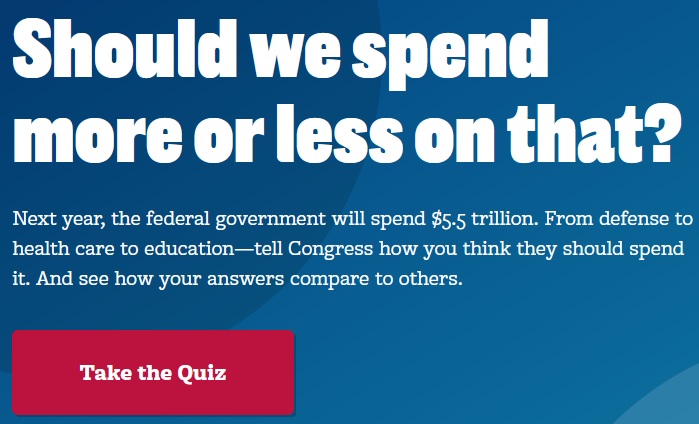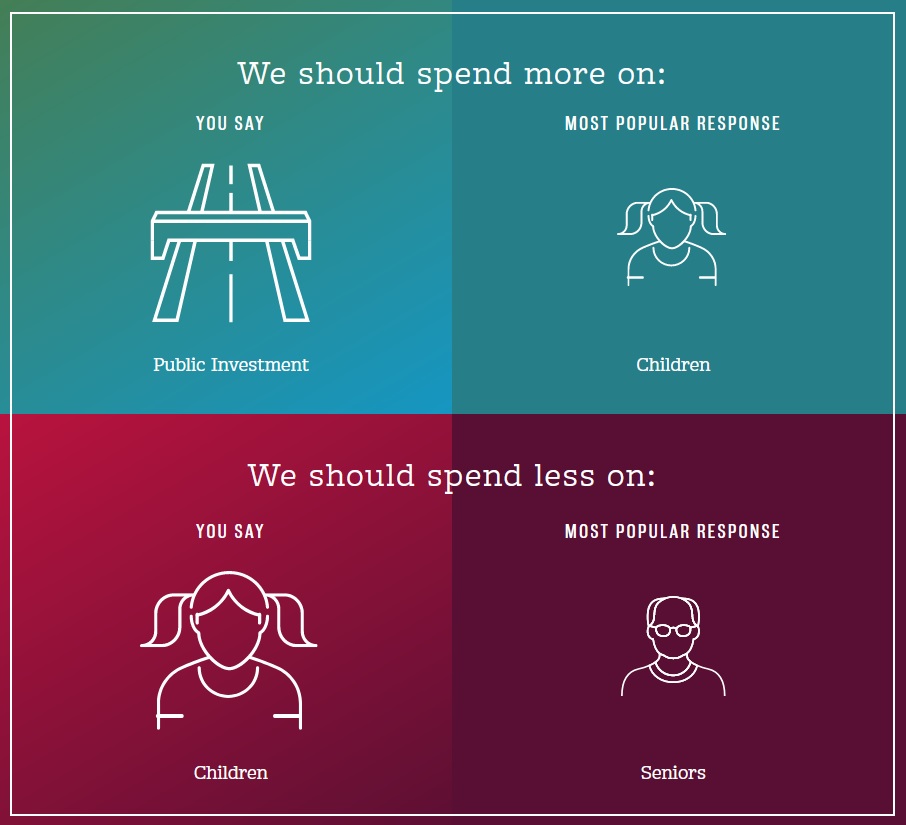Whether they are based on 10 questions or 144 questions, I can’t resist taking quizzes that supposedly identify one’s political or economic philosophy.
The good news, according to various quizzes, is that I’m 92 percent minarchist and only 6 percent communist.
Today, we are going to take a quiz prepared by the Committee for a Responsible Federal Budget. It is designed to determine fiscal priorities. You can click here to answer the 21 questions.

As is often the case with online tests and quizzes, I’m frustrated by the sloppy wording of certain questions.
Question #8 asks if we should spend more or less on interest. I answered “less,” of course, but the only way to make that happen (other than default) is to change policies so that the government borrows less money.
I imagine 99 percent of people who take the quiz will also answer “less,” but those results mean nothing without follow-up questions about whether they want less spending or higher taxes.*
Question #17 asks if we should spend more or less on seniors or children. Like any sensible libertarian I want to spend less on both categories, so how do I answer?
Question #19 asks if we should spend more or less on seniors or welfare. Once again, the correct answer is to spend less on both categories, so there’s no logical way to respond.
For what it’s worth, I opted to spend less on both children and welfare for the simple reason that – in my libertarian fantasy world – it would take longer to implement reforms to replace Medicare and Social Security.
Given the inadequate wording of the quiz, I’m not surprised I got these strange results.

Notwithstanding what the top panels says, I don’t want to spend more on so-called public investment, regardless of whether that means infrastructure or research and development.
With regards to the bottom panel, I do want to spend less on children. Or, to be more accurate, I want the government to spend less on children so that families will have greater ability to spend more on children.
I’ll close by stating that I much prefer the CRFB quiz I took last year. The questions were better designed and it gave me very accurate results (i.e., I’m a “minimalist” who is “in favor of smaller government”).
*On paper, tax increases reduce debt and therefore reduce interest costs. In the real world, higher taxes lead to weaker economic performance and a larger burden of spending, thus producing more debt and higher interest costs.
———
Image credit: 472301 | Pixabay License.

